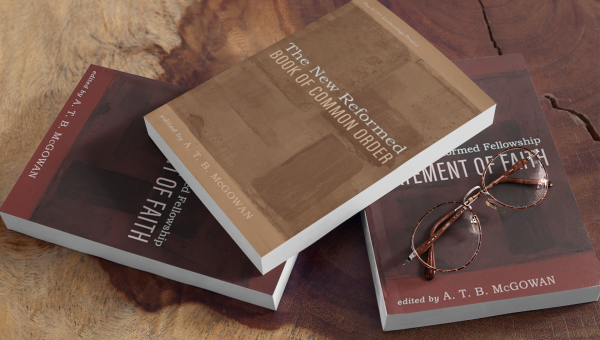
Editorial Introduction: As the church around the world celebrates the Nativity of our Lord, the World Reformed Fellowship is pleased to share this Christmas sermon by Augustine of Hippo. Preached in the early fifth century, this homily reflects on the mystery of the Incarnation with theological depth and pastoral clarity.
Add a comment
As WRF members, you will be aware of the WRF Statement of Faith, a confessional document for the 21st century, written by our Theological Commission and approved by the General Assembly of WRF. In this article, I want to direct your attention to two books which contain the Statement of Faith.
Add a comment
My stepmother was articulate, assertive, creative and organised. Slowly, and painfully, she became confused. She couldn’t recall things or organise her day. A talented textile-and-design teacher, she lost both interest in sewing and confidence in the kitchen. She seemed co-operative, but we realised that the right word was ‘compliant’. The range of her chat narrowed. For a while, her main contribution to discussion was to ask everyone to sing a song. It slowly became impossible to really know what she felt or feared. Dementia reduced her.
Add a comment
As Australians head to the polls for another federal election, there are global anxieties about the state of democracy [The Global State of Democracy 2023; Dangerous cracks in US democracy pillars]. Even in Australia there seems to have been a decline in satisfaction in democracy from high levels in the early 2000s. A 2023 study found that almost all Australians value democracy and most are satisfied with Australian democracy, but nearly half think that its future is at risk and that democratic institutions and processes are corrupted.
Add a comment
My friend Daniel Razzo sent me a couple of articles yesterday and suggested I should read them. I did read the articles and immediately felt prompted to somehow respond. See, in the last decades, the original scathing critiques of the Christian faith by the new atheism may have lost some of their strength.[1] Perhaps, however, as a reaction to what appears to be a renewed interest in Christianity from unexpected quarters, more developed versions of mainstream critiques of Christianity multiplied with a renewed sharpness, particularly in elite media and academic circles.[2]
Add a comment
This is a list of resources compiled by the Theological Education Commission (TEC) of the World Reformed Fellowship (WRF). This is an updated and improved edition (April 2025 version). Though we cannot verify everything that is contained within each listing, we have endeavoured to note and list where we have found evangelical & Reformed materials and/or personnel.
Add a comment
Twenty Reformed pastors, theologians, professors, seminary presidents, and denominational administrators from across North America gathered in Bethesda, Maryland to discuss denominationalism in our post-Christian context.
Add a comment
"Contact knowledge" is always a risk… That situation where we have a generic or diffuse idea about a term or concept and assume that we fully understand it. The idea of confessional identity always runs the risk of becoming a "contact" term: repeated, assumed, but sometimes not truly understood.
Add a comment
Some years ago, I was drawn to consider the subject of Godliness. After all, I was teaching at a Reformed Seminary that was known for a pretty decent standard of theological education. Our graduates who proceeded for further studies invariably did very well in the institutions they attended, thanks to the solid preparation they had received.
Add a comment
This essay is a revised version of a sermon preached in several churches in the US and Europe. It calls us to consider the recent, extreme levels of discrimination, persecution, or even martyrdom currently faced by Christians in almost every continent in the light of three passages from the New Testament: Romans 13:1–7; Revelation 13:1–10; and John 13:34–35. Because it may be helpful for the reader to review these biblical texts before reading the sermon, they are printed below.
Add a comment
This brief and wonderful homily by Saint Augustine of Hippo shows a beautiful balance between his desire to emphasize our joyful response to the incarnation and at the same time the humbling effect it should have on us to know that Messiah humbled himself for us by becoming flesh.
Add a comment
“Look at my dark skin and my green eyes,” the young man said, “for they are a testament to the lust of those heretical Dutch who had children with the native women…” I listened with curiosity to our guide on a visit to the old churches in the city of Olinda (Pernambuco) who praised the valiant and pious Portuguese resistance to the Dutch invaders while at the same time denouncing the impiety of those European Protestants.
Add a comment
